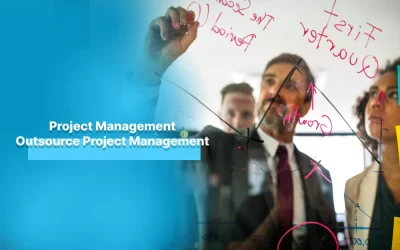CRM MS Dynamics Developer Customer Relationship Management (CRM) systems are essential tools for businesses to manage interactions with current and potential customers. Microsoft Dynamics 365, one of the leading CRM...
Outsource UX Design
outsource ux design In today’s fast-paced digital landscape, businesses are continually striving to create exceptional user experiences to stay ahead of the competition. User Experience (UX) design plays a crucial role...
What is outsourcing project management?
What is outsourcing project management? Project management is the application of knowledge, skills, tools, and techniques to project activities to meet project requirements. It involves planning, executing, and closing...
What is an Agile Coach?
What is an Agile Coach? An Agile Coach is a professional who helps organizations, teams, and individuals adopt and improve agile practices and principles. They play a pivotal role in facilitating agile transformations,...

A Comprehensive Guide to Becoming a Scrum Master
A Comprehensive Guide to Becoming a Scrum Master
In the ever-evolving world of technology and project management, the role of a Scrum Master has become increasingly vital. As companies strive to adopt agile methodologies to enhance productivity and deliver value to customers faster, Scrum Masters play a crucial role in guiding teams through the Scrum framework. In this comprehensive guide, we’ll explore what a Scrum Master is, their responsibilities, the skills needed to excel in this role, and how to become one.
Read More | What is a Scrum Master?
What is a Scrum Master?
A Scrum Master is a facilitator and servant leader responsible for ensuring that the Scrum framework is followed by the team. They help the team understand Scrum theory, practices, rules, and values. Unlike traditional project managers, Scrum Masters do not manage the team or the project directly. Instead, they focus on promoting a collaborative environment, removing impediments, and ensuring that the team can work efficiently.
Key Responsibilities of a Scrum Master
- Facilitating Scrum Events:
- Daily Stand-ups: Helping the team stay on track with short, focused daily meetings.
- Sprint Planning: Guiding the team in planning the work for the upcoming sprint.
- Sprint Review: Facilitating the review of the sprint’s progress and gathering feedback.
- Sprint Retrospective: Helping the team reflect on the past sprint and identify areas for improvement.
Read More | Outsource systems administrators
1- Removing Impediments:
- Identifying and addressing any obstacles that may hinder the team’s progress.
- Ensuring that the team has the resources and support needed to complete their tasks..
2- Coaching the Team:
- Educating team members and stakeholders on the principles and practices of Scrum.
- Encouraging continuous improvement and self-organization within the team.
3- Protecting the Team:
- Shielding the team from external distractions and interruptions.
- Ensuring that the team can focus on their work without unnecessary pressure.
4- Promoting Collaboration:
- Fostering a culture of open communication and collaboration within the team and with stakeholders.
- Encouraging team members to share knowledge and support each other.
Essential Skills for a Scrum Master
To excel as a Scrum Master, one must possess a combination of soft and technical skills. Here are some of the essential skills required:
1- Communication:
- Excellent verbal and written communication skills to convey ideas clearly and effectively.
- Active listening skills to understand the needs and concerns of team members.
2 -Leadership:
- Ability to lead by example and inspire the team to achieve their goals.
- Strong facilitation skills to guide discussions and decision-making processes.
3- Problem-Solving:
- Analytical skills to identify and resolve issues that may impact the team’s performance.
- Creative thinking to find innovative solutions to complex problems.
4- Agile and Scrum Knowledge:
- In-depth understanding of the Scrum framework and agile principles.
- Familiarity with other agile methodologies such as Kanban and Lean.
5- Conflict Resolution:
- Skills to mediate conflicts and foster a positive team environment.
- Ability to address and resolve interpersonal issues within the team.
6- Time Management:
- Efficiently managing time and prioritizing tasks to ensure that Scrum events run smoothly.
- Helping the team stay on schedule and meet deadlines.
Steps to Becoming a Scrum Master
Becoming a Scrum Master involves a combination of education, certification, and practical experience. Here are the steps to guide you on your journey:
1- Learn About Agile and Scrum:
- Start by gaining a solid understanding of agile methodologies and the Scrum framework. There are numerous online resources, books, and courses available to help you learn.
Read More | What is a business analyst ?
2- Take a Scrum Master Course:
- Enroll in a Scrum Master certification course to gain in-depth knowledge and hands-on experience. Courses such as Certified ScrumMaster (CSM) by Scrum Alliance or Professional Scrum Master (PSM) by Scrum.org are widely recognized.
3- Get Certified:
- After completing the course, take the certification exam to become a certified Scrum Master. Certification demonstrates your commitment and knowledge to potential employers.
4- Gain Practical Experience:
- Look for opportunities to apply your Scrum knowledge in real-world settings. This could be through internships, volunteer work, or entry-level positions in agile teams.
5- Build Your Network:
- Join agile and Scrum communities to connect with other professionals, share knowledge, and learn from their experiences. Networking can also help you find job opportunities.
6-Continuously Improve:
- Agile and Scrum practices are constantly evolving. Stay updated with the latest trends and best practices by attending conferences, webinars, and reading industry publications.
The Impact of a Scrum Master
A skilled Scrum Master can significantly impact the success of a project and the overall productivity of a team. By fostering a culture of collaboration, continuous improvement, and effective communication, Scrum Masters help teams deliver high-quality products and services. They ensure that the team remains focused, motivated, and aligned with the project goals.
Read More | DevOps Engineer
Real-World Success Stories
Many organizations have experienced transformative success with the help of Scrum Masters. For example:
- Spotify: Known for its agile approach, Spotify attributes part of its success to its effective Scrum Masters who promote a culture of continuous improvement and innovation.
- ING: The banking giant ING adopted agile practices and saw significant improvements in productivity and customer satisfaction, thanks to the efforts of their Scrum Masters.

Becoming a Scrum Master is a rewarding career path that offers the opportunity to lead teams, drive innovation, and contribute to the success of projects. By developing the necessary skills, obtaining certification, and gaining practical experience, you can embark on a fulfilling journey as a Scrum Master. Whether you’re just starting out or looking to enhance your existing skills, the role of a Scrum Master offers endless possibilities for growth and impact in the world of agile project management.




